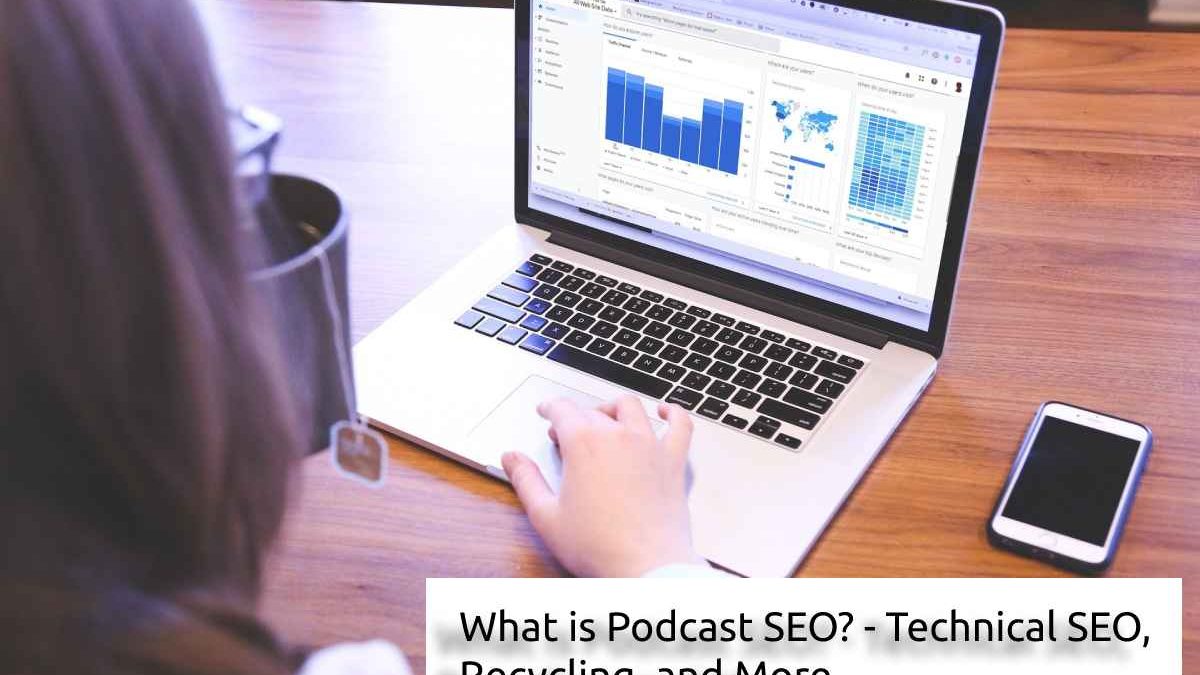Hi, I hope you are having a good day. Today, we are going to discuss Podcast SEO. Podcast SEO is a way to make your podcast more visible in search results. It can help you gather listeners’ attention and grow your podcast audience. You can do a few things to improve your podcast SEO, such as optimizing your podcast title and description, using relevant keywords in your podcast episodes, and creating transcripts of your episodes. The article below discusses Optimizing your RSS feed, Optimizing for Other Problems, Recycling, Requirements, and many more.
Some famous Podcast SEO are The Authority Hacker Podcast, Search Engine Journal Show, The Recipe for SEO Success Show, SEO 101and Webcology.
Table of Contents
Podcast SEO

Podcast SEO here the term SEO stands for “Search Engine Optimization. SEO is the process of making certain people search for your podcast or topics with your podcast.
Optimize Your RSS Feed
- Your RSS feed manages your podcasts on directories like iTunes or Stitcher.
- That determines what info gets displayed and how. When somebody subscribes to your podcast, it’s your RSS feed that they are subscribing to.
- The best way to optimize your RSS feed is to make sure that whenever you update your show’s title, description, or any other information, you change it in your RSS feed too.
Optimize for Other Platforms
Podcasting platforms and directories remain the only platforms you must be aiming for. Why not target the massive audience of YouTube as well?
- Even though your podcast is audio-based, you can quickly adapt it for YouTube to initial up your podcast to the entire YouTube community of over a billion users.
- Here you can either record a video of your podcast. And audio or create slides with your branding or relevant images and play those over your podcast instead.
- It’s also an idea to provide your accurate transcription as subtitles to override YouTube’s often wrong auto-translation subtitles.
- Its method, people can read your episode as it goes along, it’s suitable for YouTube SEO purposes, and non-native speakers of your verbal will still be able to follow along.
Recycling is Cool
Don’t be scared to reuse or rehash old content! If you have a successful episode, why not take that episode and revisit it? See if you can make something new out of your most successful attacks.
- E.g., true-crime podcast Sword and Scale have done episodes anywhere they revisit old cases and inform or bring a new spin on the issue.
- There’s too Welcome to Night Vale, who have republished old favourite episodes occasionally, usually when they are on hiatus doing a tour.
- There is nothing incorrect with republishing old content or reusing themes from previous episodes.
- It can be an effective way to promote your podcast, as republishing your best content gives newer listeners a chance to hear your best content.
- And your older listeners can once again hear your best content.
Fine-tune the “Technical SEO” requirements
Although “Technical SEO” doesn’t mean much for the average person, it resources a lot to Google, and you don’t need to mess everywhere with that if you need to learn in-depth about technical SEO.
SSL – Make certain your website is properly using SSL – or in other words – https:// rather than http:// – Currently, websites without SSL often show security warnings, contingent on the browser you are using.
Responsive websites – Though your website looks great on large desktop screens, it must also be accessible and optimized for mobile browsers. Here google and other search engines mentioned they tend to look at websites with a “Mobile First” approach.
Page speed – Search engines would continuously prefer websites that are loading relatively quickly, and hence it’s an important ranking signal.
Well, formatted HTML – Your site’s code must be clean and well structured. It’s considered a best practice only to have one H1 heading per page. Moreover, it is important to avoid excessive code or duplicate content.
Technical Meta Tags – Roughly meta tags that go into your site’ssection are more significant than others. E.g., the “Viewport” tag can help browsers determine the proper layout of your site. The “Canonical” label is important to show search engines where the original content is coming from. Finally, don’t forget to add “alt” tags for your images. Google would not account for those images otherwise.
Structured data (Schema) markup – The Structured data markup is vital as it determines how your website looks once you search for your podcast on search engines. Here you can also test how your site appears on Search Engines with this testing tool by Google.
Also Read: Write For Us


